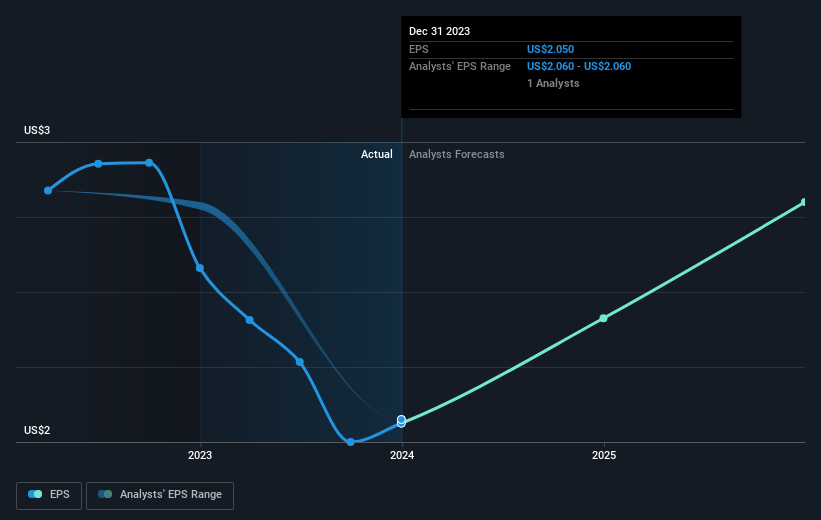Those who invested in MetroCity Bankshares (NASDAQ:MCBS) five years ago are up 102%

The main point of investing for the long term is to make money. But more than that, you probably want to see it rise more than the market average. Unfortunately for shareholders, while the MetroCity Bankshares, Inc. (NASDAQ:MCBS) share price is up 74% in the last five years, that’s less than the market return. But if you include dividends then the return is market-beating. On a brighter note, more newer shareholders are probably rather content with the 23% share price gain over twelve months.
Let’s take a look at the underlying fundamentals over the longer term, and see if they’ve been consistent with shareholders returns.
Check out our latest analysis for MetroCity Bankshares
There is no denying that markets are sometimes efficient, but prices do not always reflect underlying business performance. By comparing earnings per share (EPS) and share price changes over time, we can get a feel for how investor attitudes to a company have morphed over time.
Over half a decade, MetroCity Bankshares managed to grow its earnings per share at 3.7% a year. This EPS growth is lower than the 12% average annual increase in the share price. This suggests that market participants hold the company in higher regard, these days. And that’s hardly shocking given the track record of growth.
You can see how EPS has changed over time in the image below (click on the chart to see the exact values).
We consider it positive that insiders have made significant purchases in the last year. Having said that, most people consider earnings and revenue growth trends to be a more meaningful guide to the business. Dive deeper into the earnings by checking this interactive graph of MetroCity Bankshares’ earnings, revenue and cash flow.
What About Dividends?
It is important to consider the total shareholder return, as well as the share price return, for any given stock. The TSR incorporates the value of any spin-offs or discounted capital raisings, along with any dividends, based on the assumption that the dividends are reinvested. So for companies that pay a generous dividend, the TSR is often a lot higher than the share price return. We note that for MetroCity Bankshares the TSR over the last 5 years was 102%, which is better than the share price return mentioned above. This is largely a result of its dividend payments!
A Different Perspective
MetroCity Bankshares provided a TSR of 27% over the year (including dividends). That’s fairly close to the broader market return. Most would be happy with a gain, and it helps that the year’s return is actually better than the average return over five years, which was 15%. It is possible that management foresight will bring growth well into the future, even if the share price slows down. While it is well worth considering the different impacts that market conditions can have on the share price, there are other factors that are even more important. For example, we’ve discovered 1 warning sign for MetroCity Bankshares that you should be aware of before investing here.
If you like to buy stocks alongside management, then you might just love this free list of companies. (Hint: insiders have been buying them).
Please note, the market returns quoted in this article reflect the market weighted average returns of stocks that currently trade on American exchanges.
Have feedback on this article? Concerned about the content? Get in touch with us directly. Alternatively, email editorial-team (at) simplywallst.com.
This article by Simply Wall St is general in nature. We provide commentary based on historical data and analyst forecasts only using an unbiased methodology and our articles are not intended to be financial advice. It does not constitute a recommendation to buy or sell any stock, and does not take account of your objectives, or your financial situation. We aim to bring you long-term focused analysis driven by fundamental data. Note that our analysis may not factor in the latest price-sensitive company announcements or qualitative material. Simply Wall St has no position in any stocks mentioned.





